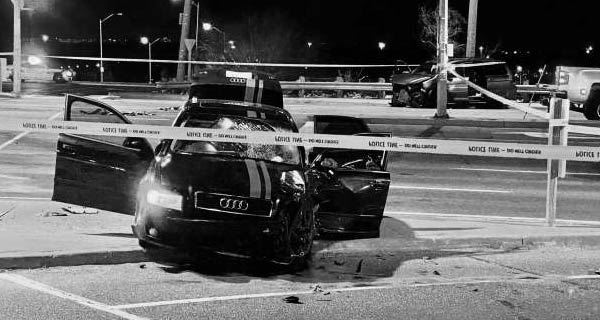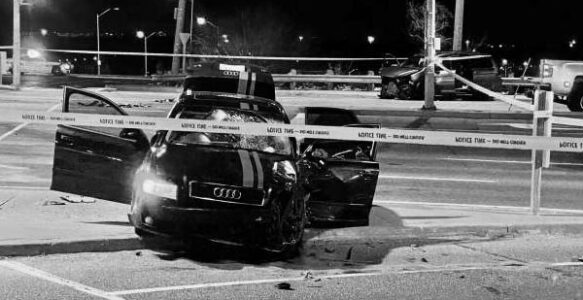More than 200,000 motor vehicle incidents occurred on Ontario highways in 2014, the most recent year for which official numbers are available. Yet, despite the large number, only 1.61 collisions per million kilometers traveled in the province.
To put it another way, becoming involved in a collision is uncommon for most Ontarians. That is undeniably a good thing, but it also means that when someone is involved in an accident, they are frequently unclear of what to do next.
Even worse, many Ontarians make mistakes in the hours, days, and weeks following an accident, making it challenging to recover legal restitution or insurance benefits for property damage and personal injuries.
We’ve already explored what you should do if you’re involved in a car accident in Ontario. Today, we’d want to look at seven of the most typical mistakes we see Ontarians make after a car accident in the province.
CAR ACCIDENTS LAWYERS IN CANADA
1. Acknowledging Fault
When you’re in an accident, one of your first responses might be to say you were at Fault, whether or not you were. But, do not, despite your instincts. Although you may believe that accepting responsibility will help calm a potentially stressful situation at the accident scene, you will only end up in legal difficulties in the future.
This is because if another individual involved in the accident files a tort claim, your admission of Fault can be used against you. And your initial evaluation of the reason of the accident and any other evidence that may come to light can easily outweigh your future assessment of the cause of the accident or other evidence that may come to light.
2. Neglecting to Gather Evidence
The scene of an accident is full of evidence that can be used to prove Fault and refresh your memory in the weeks, months, and years following the event. Of course, your primary concern should be your own safety as well as the safety of others involved. However, if at all feasible, you or someone you know should take some time to gather some of the evidence that is accessible.
The identification and insurance information for the other drivers involved in the accident are the most basic proof you should collect. Unfortunately, some people will try to deceive you, so inspect their driver’s licenses and insurance cards for yourself.
However, if you can, you should gather extra evidence at the scene of the accident. With your smartphone, take images of the scene. Inquire if anyone else was present at the time of the accident, and if so, obtain their contact information so that you or your lawyer can contact them later.
3. Refusing to seek medical help
Many Ontarians make another mistake in the aftermath of an Ontario car accident: they fail to seek medical attention. They may do so because they don’t want to be a burden on others, find going to the hospital inconvenient, or believe their injuries aren’t serious enough to warrant medical treatment.
Failure to seek diagnosis and treatment is, however, a terrible idea for at least three reasons:
You’re not a medical professional. Many injuries sustained in a vehicle collision in Ontario are first undetectable, such as whiplash. However, even known injuries may turn out to be more serious than you thought shortly after the accident. An expert medical practitioner can assist you in getting an accurate diagnosis for all of your injuries.
Time does not cure all wounds. You may believe that all you need to get better after an accident is to take some time off work and rest. That may be true in some cases, but not all. Allow a competent medical practitioner to assess the best course of action for your injury.
Your insurance provider, as well as the courts in Ontario, will want proof of your injuries. Finally, seeking medical treatment leaves a paper trail that you or your personal injury attorney can use to prove the degree of your injuries to an insurance company or a court if necessary.
4. Failure to Report the Collision
If someone is hurt in an automobile collision or the damage to all vehicles appears to be larger than $2,000, Ontario law compels you to call the police right once. You have 24 hours to report a collision to a Collision Reporting Centre if you don’t report it to a Collision Reporting Centre.
Similarly, you must disclose your accident to your insurance carrier within seven days to be eligible for statutory accident benefits. If you are unable to do so within that time frame, you must do so immediately. Your benefits may be delayed or you may lose your right to receive them entirely if you do not comply.
5. Using Social Media to Discuss Your Ontario Car Accident
People nowadays use social media sites like Facebook, Instagram, and Twitter to discuss everything and everything. However, it’s best to keep things to yourself when it comes to legal claims, such as accident-benefit claims and tort claims following an Ontario vehicle accident.
Insurance firms and defense lawyers are getting more tech-savvy, and they’re turning to injured people’s social media accounts for evidence. Photos of the collision, admissions of Fault gleaned from status updates, or photographs or descriptions of the wounded individual doing something he or she shouldn’t be able to do with the injuries reported could all be examples.
6. Making a hasty decision
As previously said, you may not always be aware of the entire extent of your injuries right away. And, unless you’re a lawyer, you might not be aware of your legal rights in the aftermath of an accident. Insurance companies will frequently try to take advantage of your naivete to pressurize you into fast settling your claim by signing a form that decreases the amount they must pay you.
The bottom line: If another driver or an insurance company asks you to sign something, your best option is to have your claim and that paperwork evaluated by a lawyer first.
7. Failing to Consult an Expert Personal Injury Lawyer in Ontario
The laws governing compensation following a car accident in Ontario are intricate. Whether you’re filing a DC-PD claim for vehicle property damage, an accident-benefits claim with your own insurer, or a tort claim with another driver’s insurer, the insurance company you’re dealing with will be represented by competent lawyers to help them negotiate those laws.
You should be as well.

